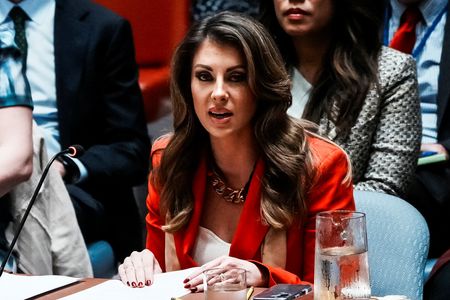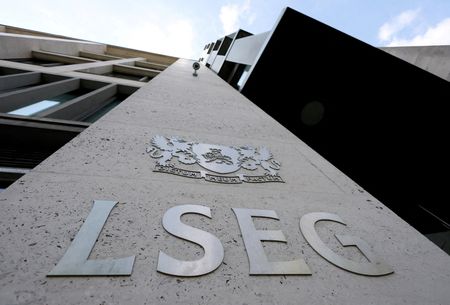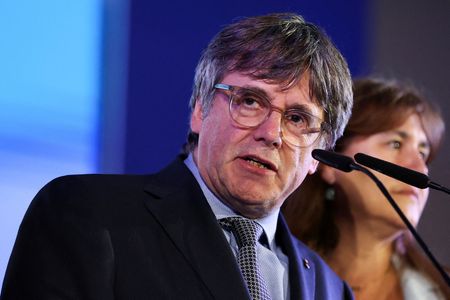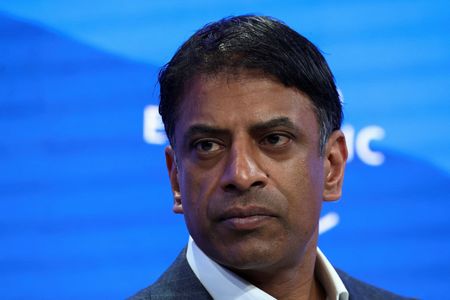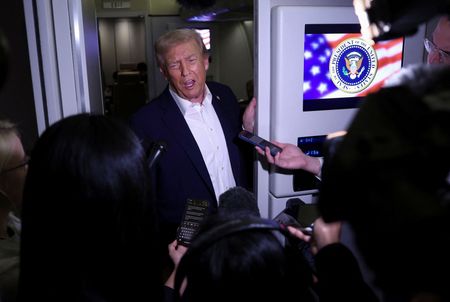BEIRUT (Reuters) -U.S. envoy Morgan Ortagus is expected in Beirut on Monday for talks with Lebanese officials on disarming militant group Hezbollah, sources familiar with her visit said, amid fears in Lebanon that Israel could launch a renewed air war on the group.
Those worries have been driven by days of intensifying Israeli strikes on Lebanon’s south and east that have killed more than a dozen people, most of them Hezbollah members, according to Lebanese security sources.
Lebanon fears the bombing shows Israel intends to ramp up its air campaign, despite a November 2024 ceasefire that was intended to end a year-long war between Israel and Iran-backed Hezbollah in Lebanon.
Ortagus, the White House’s deputy Middle East envoy, is expected to attend a meeting on Wednesday reviewing the Lebanese army’s efforts to clear Hezbollah arms caches in the country’s south, in line with the 2024 truce.
Another U.S. envoy, Tom Barrack, warned last week that Hezbollah may face a new confrontation with Israel if Lebanese authorities fail to act quickly to disarm the group in full, which Hezbollah has rejected doing so far.
On Sunday, an Israeli strike killed a man that Israel said was a weapons dealer on behalf of Hezbollah. Lebanese security sources said the man, named Ali al-Musawi, was the most senior member of the group to be killed since the ceasefire.
Also on Sunday, United Nations peacekeepers said they had “neutralized” an Israeli drone that was flying over their patrol in south Lebanon in “an aggressive manner”.
A source briefed on the incident told Reuters peacekeepers shot the drone instead of downing it with jamming devices because it was deemed to be posing a threat, and that an Israeli tank then fired a warning shot near peacekeepeers.
Israeli military spokesman Avichay Adraee said the drone was carrying out “routine intelligence gathering” and was not posing a threat. He said Israeli troops then threw a hand grenade at the area but did not fire directly at U.N. troops.
The Israeli military says its continued strikes in Lebanon are targeting Hezbollah’s attempts to re-establish military infrastructure in the south, which the group denies doing.
(Reporting by Maya Gebeily; Editing by Andrew Heavens)

